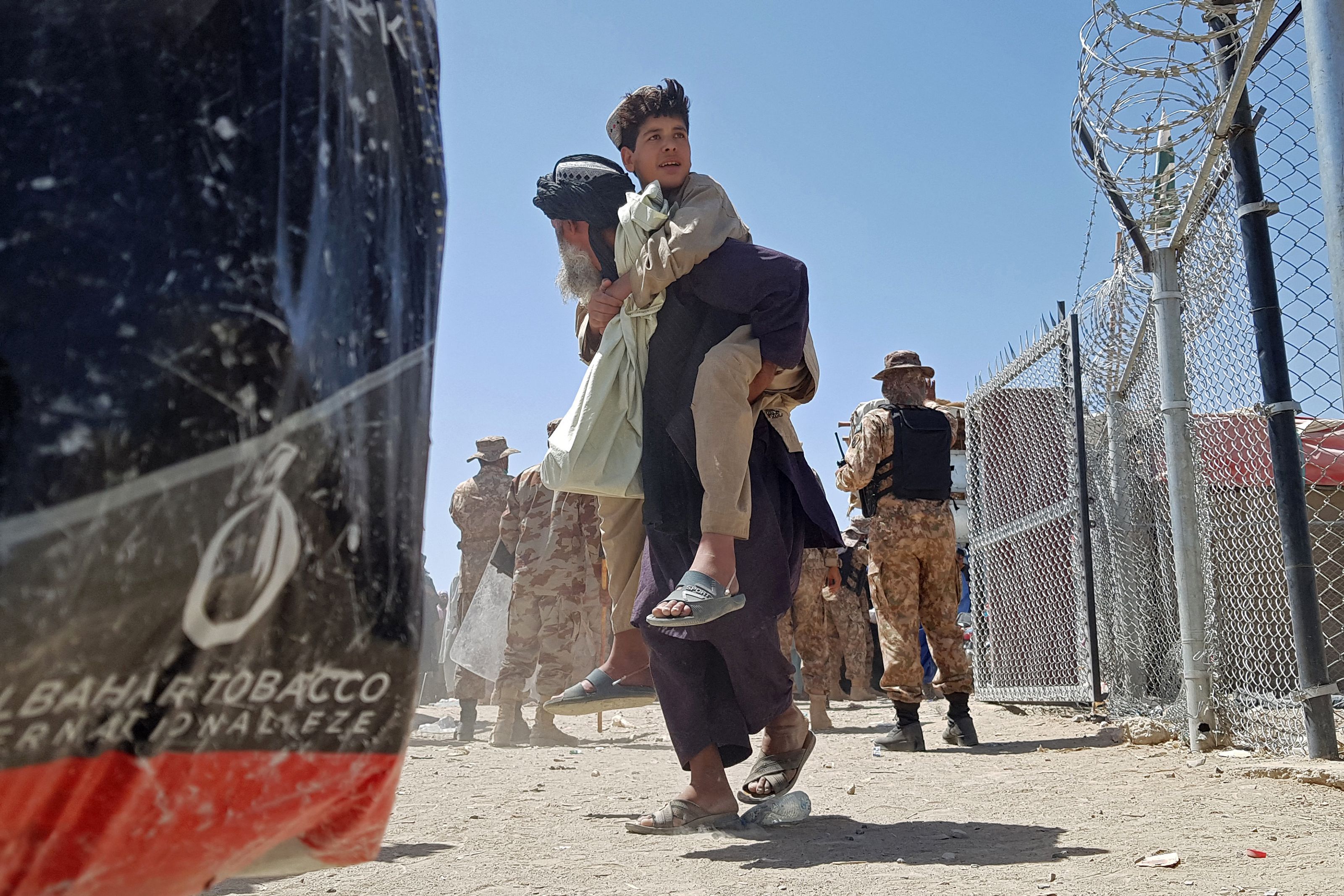Taliban closes in on Kabul amid fierce clashes near the capital
Jihadists group appear to have assault on capital in their sights after captures of Kandahar and Herat

The fate of Kabul is now the focal point of the conflict, with the Taliban closing in on the Afghan capital after gaining the three strategic and symbolic prizes they had fought hard to secure.
With the capture of Kandahar, Lashkar Gah and Herat in the south and west of the country, and two cities close to Kabul – Ghazni and Pul-e-Khumri, respectively 80 and 110 miles away – the Islamist group appeared to have cleared the deck for an assault on the capital.
In a huge propaganda coup, the jihadists are also reported to have captured Ismail Khan, the veteran 70-year-old mujaheddin commander who had been leading a militia defending Herat.
He, along with the provincial governor and security officers, was handed over to the insurgents by officials who had changed sides on the promise of no retribution being taken.
“The Taliban agreed that they will not pose any threat or harm to the government officials who surrendered”, said provincial council member Ghulam Habib Hashimi.
Fierce clashes are also taking place in Logar province, 50 miles south of Kabul, and close to the gates of the capital. Getting there would mean the insurgents would be able to strike into the city and possibly get to Policharki prison, where most of the remaining senior Taliban inmates are kept.
The rapid Taliban offensive has forced thousands of Afghan citizens to flee to Kabul to take refuge, with the World Food Programme warning of a “dire” food situation and a humanitarian catastrophe unfolding.
The UN have pleaded with Afghanistan’s neighbours to keep their borders open as civilians take flight. US intelligence assessments this week have warned the Taliban could isolate the capital within 30 days.
But it is unclear whether the Talibs would carry out an assault on the capital with the arrival of American and British forces which have been sent to the country to carry out an emergency evacuation of British and Afghan civilians as well as members of the countries’ armed forces.
Washington has warned Taliban leaders directly that the US would respond if the Taliban attacked Americans during the temporary US military deployments.
The UK will send 600 soldiers from the 16 Air Assault Brigade while the US will deploy 3,000 troops including a battalion of marines. The forces of both countries are going to be based at Kabul airport.
The airlift is expected to be completed by the end of the month, one of the dates given by the Biden administration for the final pullout of American forces.
The rapidly deteriorating security situation has prompted an international scramble to evacuate foreign nationals from several other countries too.
Germany’s foreign minister, Heiko Maas, said his country is reducing its embassy staff in the capital to “the operationally necessary, absolute minimum”.
Norway’s foreign minister announced its foreign embassy in Kabul was closing, and Denmark’s foreign minister was quoted by DV2 as saying their embassy in Kabul was being evacuated.
Nato secretary-general Jens Stoltenberg and 30 national ambassadors met in Brussels later on Friday on the deteriorating situation in Afghanistan.
Canadian special forces will deploy to Afghanistan to help Canadian staff leave Kabul, a source told the Associated Press.
Australia is working urgently to evacuate the last Afghans who helped its troops and diplomats, prime minister Scott Morrison said on Friday.
Both Washington and London say there are no intentions of using the troops in the Afghan conflict, but defence officials warn of the risks of “mission creep” if a Taliban attack takes place on the capital while the British and American forces are still there.
Join our commenting forum
Join thought-provoking conversations, follow other Independent readers and see their replies
Comments